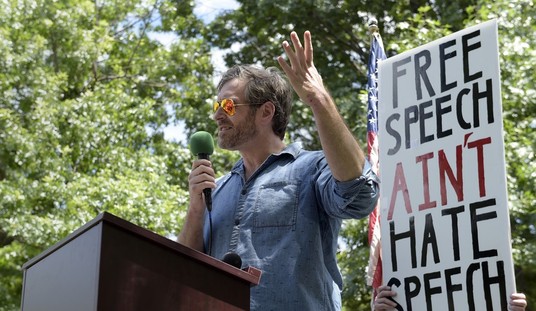Just saw on Drudge that Aaron Spelling died, at age 83. As his (no doubt largely pre-written) CNN obituary notes, Spelling produced a superfluity of fluffy hour-long series, hitting his peak in the 1970s, when he had an exclusive deal with ABC:
Spelling’s other hit series included “Love Boat,” “Fantasy Island,” “Burke’s Law,” “The Mod Squad,” “Starsky and Hutch,” “T.J. Hooker,” “Matt Houston,” “Hart to Hart” and “Hotel.” He kept his hand in 21st-century TV with series including “7th Heaven” and “Summerland.”
He also produced more than 140 television movies. Among the most notable: “Death Sentence” (1974), Nick Nolte’s first starring role; “The Boy in the Plastic Bubble” (1976), John Travolta’s first dramatic role; and “The Best Little Girl in the World” (1981), which starred Jennifer Jason Leigh.During the 1970s and 1980s, Spelling provided series and movies exclusively for ABC and is credited for the network’s rise to major status. Jokesters referred to it as “The Aaron Broadcasting Company.”Success was not without its thorns. TV critics denounced Spelling for fostering fluff and nighttime soap operas. He called his shows “mind candy”; critics referred to them as “mindless candy.”
As Todd Gitlin astutely observed in his 1983 book, Inside Prime Time, beginning with The Mod Squad, Spelling hit upon his primary formula: a group of young, photogenic leads, and somewhere in the background, a father figure who both provided the older generation with a reason to watch the show, and comforted them that the leads wouldn’t go too far off the beaten bath of societal norms. (Remember, we’re talking 1970s network television here, which was rather tame when compared to your average HBO series of today).
Spelling took that formula to its absolute peak with Charlie’s Angels, which built on The Mod Squad’s trio of hip young leads, but replaced the sixties-era psychedelic drop-outs with three drop-dead gorgeous women fighting crime not in bell-bottoms and headbands, but very 1970s-style Nolan Miller-designed outfits. The Angels actually had two father figures to keep them out of trouble — the eunuch-like David Doyle on-camera, and above him on the crime fighting food chain, the perfect boss, voiced by the suave John Forsythe, but literally just off-screen. Thus, as Gitlin noted, every man watching the show could pretend that he was Charlie, and “the girls” worked for him.
As a television formula, it worked absolutely brilliantly, and the show was a huge ratings smash. It’s no coincidence that the peaks of both Johnny Carson and Spelling’s careers were in the same era; As Jeff Jarvis wrote when Carson passed away:
Carson also represented the golden age of America’s shared experience in media. That era lasted about three decades, from the late ’50s to the late ’80s, when the three networks turned most cities into one-newspaper towns and we all watched the same thing. I don’t regret that era dying; it means we now have more choice and choice equals control. But it was a unique time in our culture, when popular culture became a common platform, a common touchstone for Americans. We all got Johnny’s jokes.
And, for better or worse, we all watched Aaron’s shows.
Thanks to Nick At Nite and its TV Land spin-off, insomniacs at least, are doomed to watch those shows into eternity. And if there’s a God, He’s forcing Spelling to as well, in Sisyphean penance.
The irony is that Spelling’s probably enjoying them.
Update: Aaron Spelling: Straussian Neo-Con!










Join the conversation as a VIP Member